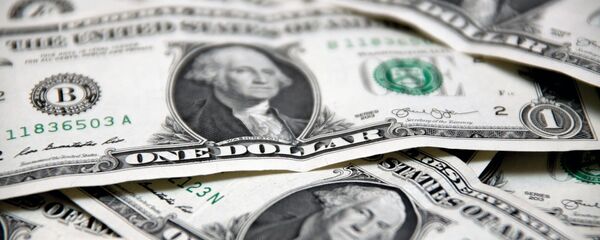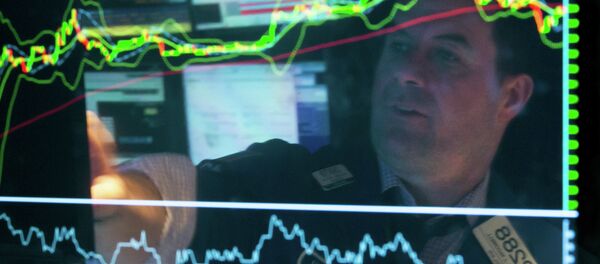Lagarde, however, has acknowledged that the Federal Reserve's rate increases have created headaches for emerging economies and have sent local currencies tumbling.
Radio Sputnik has discussed the US stock market's slide with Fabrizio Carmignani, a professor at the Griffith Business School.
Sputnik: What can you say about the recent stock market collapse in the US? Do you think it was expected and what do you think is behind it?
The US is increasing tariffs on Chinese goods and this has implications for the US economy because imports from China become more expensive and this has an impact on US firms, but it also has an impact on consumers in the US. The other problem that there is now is, I think, the increasing interest rate in the United States which was necessary, however, it is affecting the stock market in a negative way. So, it's a bit of a combination of these two factors that are leading to the dynamics that we are observing this week.
READ MORE: US Stocks Dive For Second Day In a Row
Sputnik: Do you think that this was an inevitable correction?
Fabrizio Carmignani: To some extent, it's a necessary correction, particularly when it comes to the interest rate. It was necessary to increase the interest rate; and whenever we have an increase in the interest rate, there is a decline in the stock market. So, in this sense, I see this as necessary.
Sputnik: Donald Trump actually accused the Federal Reserve's rate hike and he said that it was to blame for the turmoil in the markets; although you say that it's a necessary move, why do you think it's necessary? Why was it necessary at this time?
Fabrizio Carmignani: The interest rate in the US has been low for a long time, so it's necessary now to normalize the level of the interest rate. There is a risk in the US of an increase in inflation. The US economy was doing well and therefore it was on an upward trend; and whenever there is an upward trend, one has to be aware of possible inflationary pressures. And this is what the US Federal Reserve is doing. They're looking at inflationary pressure and they are normalizing the level of the interest rate. Yes, this has an impact of the financial market and the stock market, but as I said before it's not just because of that, that the financial market is now declining. There is also the fact of the trade war which is contributing a lot to the financial uncertainty and volatility.
READ MORE: Trump Once Again Slams Federal Reserve, Calls It Too Aggressive
Fabrizio Carmignani: It will all depend on what happens in terms of the trade relationship between the US and China, and also between the US and Europe. If the relationship doesn't deteriorate, then I expect the market to stabilize relatively soon. But of course, if we continue with these tensions, if we continue with the prospect of a trade war, then the financial market will continue to suffer in the medium-term. It all depends on the type of policies that are going to be implemented by the US in relation to trade.
Sputnik: Do you think that the whole trade spat between China and the US is a bargaining method and that we will see some kind of normalization of relations, or do you think this is actually new policy for the US?
Fabrizio Carmignani: That's an excellent question and it's very difficult to answer that. I'd like to think that the relationship is going to normalize because in the end, no one has to gain from a continuation of these tensions. Whether the US will change their course of action, well that's difficult to say.
READ MORE: IMF Chief Lagarde Defends Fed's Rate Hikes Slammed by Trump
Sputnik: Let's talk about the impact that all of this is having on emerging economies and actually on the world economy. Talking about the increases of the rates by the Fed, Lagarde said that they were normal but acknowledged that they, of course, did cause a problem for the emerging economies, many of which have American debt, and they've affected the currencies of those countries very significantly. How do you think this will further develop?
Fabrizio Carmignani: There are two things that I'd like to enumerate right now. Because of the increase in the interest rate, the US dollar is becoming stronger and stronger, and as you said this is causing the problem for all these emerging economies that have their debt denominated in US dollars.
This debt is becoming more expensive for them. But there is also a second problem: because of a higher interest rate now international capitals are flowing from the emerging economies to the US. We have already observed a little bit of capital outflow from emerging economies to the US. So, it is true, there are implications for emerging economies following the increase in the interest rate. But I go back to my previous point, I believe that this increase in the interest rate was necessary. Yes, there are short-term implications that are negative but in the medium-term, I think it's important to maintain the interest rate in the US at a normal level. We couldn't have continued with the interest rates so much below the normal level.
The views and opinions expressed by the speaker do not necessarily reflect those of Sputnik.






